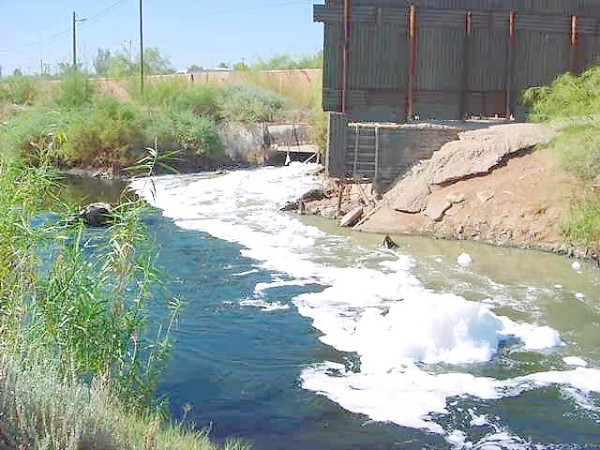
H.R. 953 Eliminates Public Right to Know When Pesticides Sprayed Directly Into Water
WASHINGTON—(ENEWSPF)–May 26, 2017. The U.S. House of Representatives passed legislation yesterday that would eliminate critical Clean Water Act safeguards, allowing more pesticides to be sprayed directly into streams, lakes, rivers and drinking water supplies.
If enacted into law, H.R. 953 would strip away common-sense measures in place since 2011 requiring straightforward Environmental Protection Agency permits to spray pesticides directly into water for mosquito-control activities, weed and algae control, and forest-canopy pest control.
“A day after the Trump administration’s budget proposed eviscerating the EPA, the House voted to begin making that vision a reality,” said Brett Hartl at the Center for Biological Diversity. “This dangerous loophole would benefit pesticide giants like Dow Chemical and leave the rest of us totally unaware of toxic chemicals going into our rivers and lakes.”
H.R. 953 eliminates the EPA’s Pesticide General Permit, which requires a permit before spraying a pesticide directly into water. The overwhelming majority of pesticide applicators may apply for a general permit with very few restrictions on spraying, while only the largest-volume applicators must receive an individual permit. Exemptions to the permit requirement are available for human-health emergencies. No permit under the Clean Water Act is required for normal farming operations.
Since 2011 the pesticide lobby has repeatedly pushed to eliminate the permit. In the last Congress an identical bill was renamed the “Zika Vector Control Act” in the hopes of using the public-health emergency as a scare tactic to enact the legislation into law.
Alarmist predictions by pesticide manufacturers and others have failed to demonstrate any significant burdens or problems in the permit’s implementation. In testimony before Congress, the EPA stated: “We have not been made aware of any issues associated with the Pesticide General Permit. Nobody has brought an instance to our attention where somebody has not been able to apply a pesticide in a timely manner . . . [t]here have been no instances. We’ve been getting very good data.”
“Keeping Americans in the dark about where, when and which pesticides are sprayed into our waters may benefit large corporations and other special interests, but it’s not in the interest of our families or our environment,” said Hartl. “With more than 1,000 lakes and rivers in the United States already polluted by pesticides, we should be strengthening Clean Water Act protections, not eliminating them.”
The Center for Biological Diversity is a national, nonprofit conservation organization with more than 1.3 million members and online activists dedicated to the protection of endangered species and wild places.
Source: http://biologicaldiversity.org








